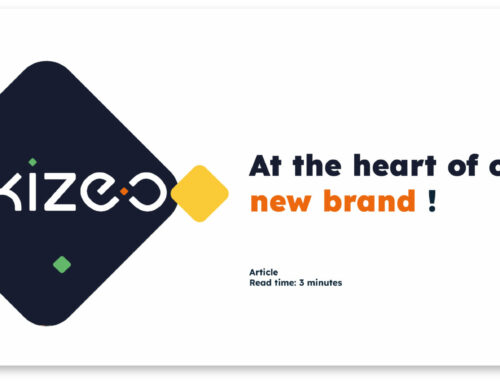Digitization made its appearance in 2004:
The term “digitization” refers to the action of converting text, images, video and audio into digital data by means of computer solutions (software, applications, etc.). One of the consequences of digitization is “digital transformation“.
Digitization and digital transformation seem to be close in meaning, it is nevertheless essential to understand that there are fundamental differences between these two notions:
Digitization is the conversion of information from a medium (text, image, audio, video) or an electrical signal into digital data that digital or computer devices can process such as numeric data. Numeric data is defined as a sequence of characters and numbers that represent information.
Digital transformation refers to the changes associated with the integration of digital technology into all aspects of human society. The use of this term dates from 2014.
Clearly, it is about using all digital technologies to increase the performance of societies, associations, political power or any other organization and contribute to an improvement of the standard of living. Digitization has affected all areas of activity without exception. This has even called into question the existence of certain professions by allowing “uberization“.
Digitization involves the use of the smartphone as a working tool:
Digitization originated around the year 2000 with the advent of the computer and the Internet. Then this phenomenon accelerated significantly in 2007 with the appearance of the Smartphone. The Smartphone concentrates all that digital technology has brought us: digitization of sound, images of text, storage, intuitive and instant communication of all this information. Today some specialists agree that more than 50 percent of our communication goes directly through the internet (E-mail, WhatsApp, Slack, Face time). The Smartphone has become the essential support for digitalization. It is therefore essential to integrate it into your digital transformation by making it a real working tool. No matter where you are, the Smartphone allows you to stream, view, record, share and communicate information quickly and easily.
Why you need to digitize your business?
Too many SMEs and medium sized businesses are still choosing to work with older software like Excel. Although practical and irreplaceable some of these softwares are no longer the weight of modern applications. Applications that interconnect with each other and have a high potential for automation. It is essential today to invest in modern tools allowing the digital transformation of a company. Digitization is not only meant for large organizations. It’s an investment in the future that allows you to:
- Give a modern picture of your business. Modern companies always have a better image and innovative spirit (ex: Tesla, Google).
- Abolish space barriers and give birth to new uses such as telecommuting, distance learning and presentations.
- Produce tailor-made offers and services to retain your customers.
- Automate a large number of business processes. This has the immediate effect of increasing your productivity and improving your margin.
- Collect and process a large amount of data (big data) on your customers or employees. Refine data collection methods to respect the GDPR
- Improve the working conditions of your employees.
- Enhance communication between different professions.
Digitization does not always involve the implementation of expensive software. There is a multitude of applications that can help you save a considerable amount of time, Kizeo Forms being one of them.






Leave A Comment